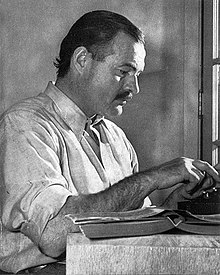 |
| Ernest Hemingway |
Isn't truth a funny word? Most of us appreciate it, most of us desire it. Very few of us, however, can define it. Philosophers tell us there are essentially two ways of looking at truth. The correspondence theory suggests that truth is simply that which corresponds to reality. While this seems logical enough, it raises other questions: how do we know what is real and how do we therefore know what corresponds to it?
Taking a different tack, the coherence theory holds that truth is the sum total of what seems apparent, logical, and right. Truth is not fixed but is rather what appears to be most correct based on the prevailing evidence. Yet how do we decide what is most correct and right?
Though I see virtue in both perspectives, I won't try to reconcile them now. I merely wish to make an observation about the necessity of truth. When we insist that truth is relative or a creation of the moment, we are essentially saying that truth does not exist. If so, we have no good reason to hold that even we exist. If nothing holds, if nothing is sure, then neither are we.We need truth to be truth. Otherwise, we became like the protagonist of Ernest Hemingway's Farewell to Arms, who, in the final scene of the novel, when he has just watched his wife die giving birth to his child, then stood by as the child died, too, "put on his hat and walked into the rain."
No comments:
Post a Comment